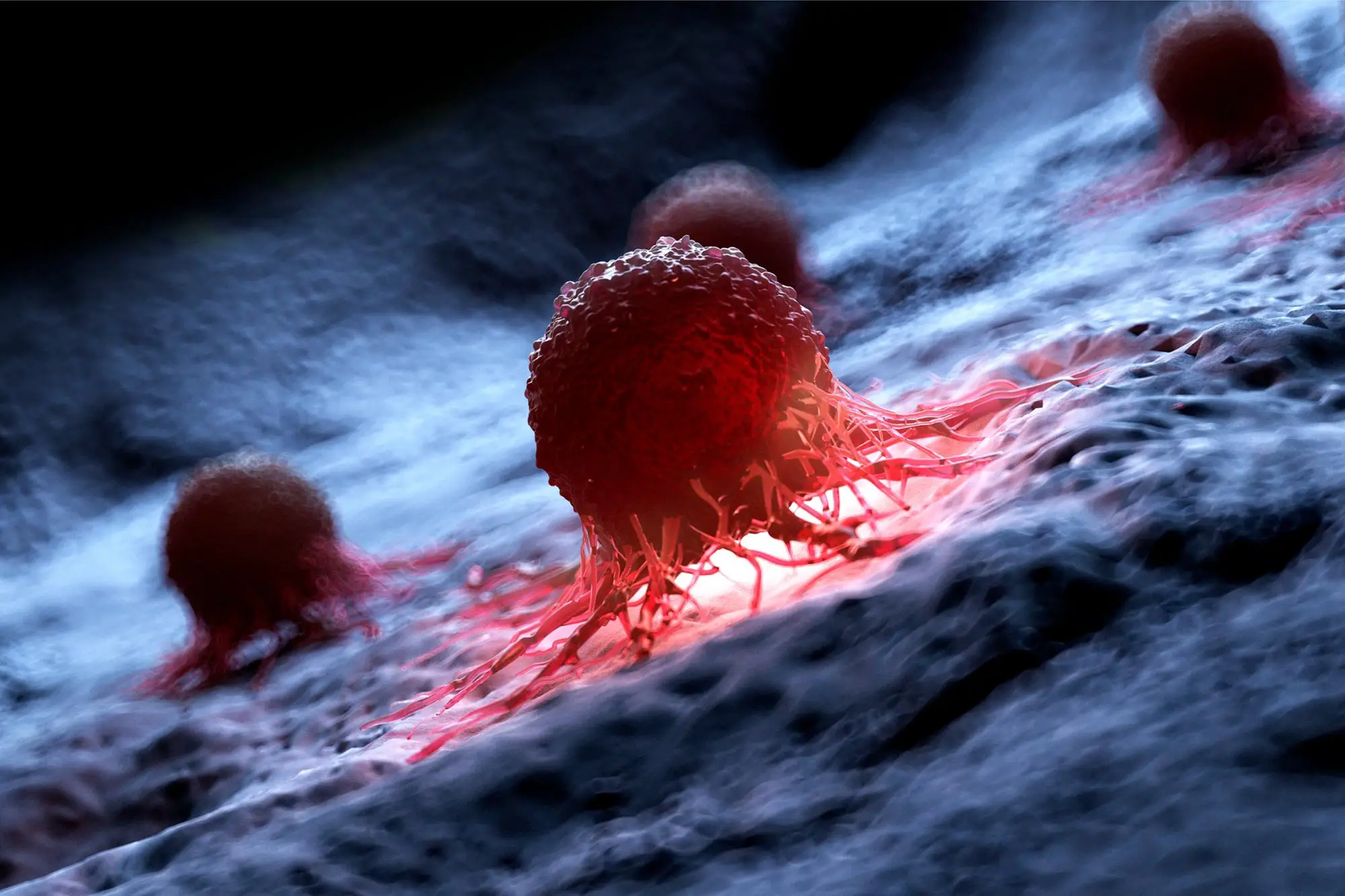Summary of “I’ve Never Seen Something That Eradicates a Tumor Like This” – New Therapeutic Permanently Eliminates Gastric Cancer:
New cancer therapy has been developed that combines antibody fragments with molecularly engineered nanoparticles, permanently eradicating gastric cancer in treated mice. The drug delivery system, known as Cornell prime dots or C’ dots, is a “hit and run” treatment, which can potentially adapt to and treat various cancer types with minimal side effects. The C’ dots, silica nanoparticles just 6 nanometers, are small enough to penetrate tumors and safely pass through organs once injected into the body. The therapeutic was developed in collaboration between Cornell University, Memorial Sloan Kettering Cancer Center, and biopharmaceutical company AstraZeneca.
*****
New Cancer Therapeutic Successfully Eradicates Gastric Cancer in Mice
A multi-institutional team of researchers has developed novel cancer therapies that permanently eliminated gastric cancer in treated mice. The “hit and run” drug delivery system, called Cornell prime dots (C’ dots), combines antibody fragments with molecularly engineered nanoparticles and shows potential as a versatile and adaptable treatment for various types of cancer, with minimal side effects and toxicity.
The Study
The results of the study were published in the journal Advanced Therapeutics. They represented the conclusion of a collaboration between Cornell University, Memorial Sloan Kettering Cancer Center, and the biopharmaceutical company AstraZeneca. The research spanned over five years and was led by co-authors Dr. Michelle Bradbury, MSKCC director of intraoperative imaging, Ulrich Wiesner, the Spencer T. Olin Professor in the Department of Materials Science and Engineering at Cornell Engineering, and J. Anand Subramony, the vice president of protein engineering research and development at AstraZeneca at the time of the study.
The Therapeutic
Targeted cancer treatments such as antibody and nanoparticle therapies have seen limited clinical use because of each therapy’s limitations. However, the new therapeutic, an evolution of what the researchers call Cornell prime dots or C’ dots, combines the best attributes into an ultrasmall and powerful effective system.
C’ dots are silica nanoparticles just 6 nanometers in size, making them small enough to penetrate tumors and safely pass through organs once injected into the body. The final product was a version of C’ dots that combined cancer-targeting antibody fragments and an extensive drug payload packed into a sub-7-nanometer, drug-immune conjugate therapy – a first-of-its-kind in that size class, according to the researchers.
The Results
Mice with gastric cancer received three doses of the therapeutic. Not only did the treatment eradicate the disease in every mouse, but there was no evidence of tumor recurrence after nearly 200 days. “Usually, you’d have to couple the treatment with other therapies to see those long-term results,” Bradbury said. “It showed that this team’s very detailed, careful work – the years spent on the stoichiometry and the surface chemical developments – it paid off.”
The Future
Bradbury underscored the versatility of the C’ dots platform. She envisions it being used not as a replacement for antibody treatments but as a complementary tool that can be adapted to different types of cancers and other specific needs of patients. Wiesner and Bradbury said the research behind the new C’ dot therapeutic would be continued by Elucida Oncology, a startup company they founded to help bring the technology to market.
In conclusion, the C’ dots platform shows promise as a versatile and adaptable treatment that can be used for various types of cancer. The research behind the new C’ dot therapeutic will continue to be developed, offering new hope for cancer patients.


